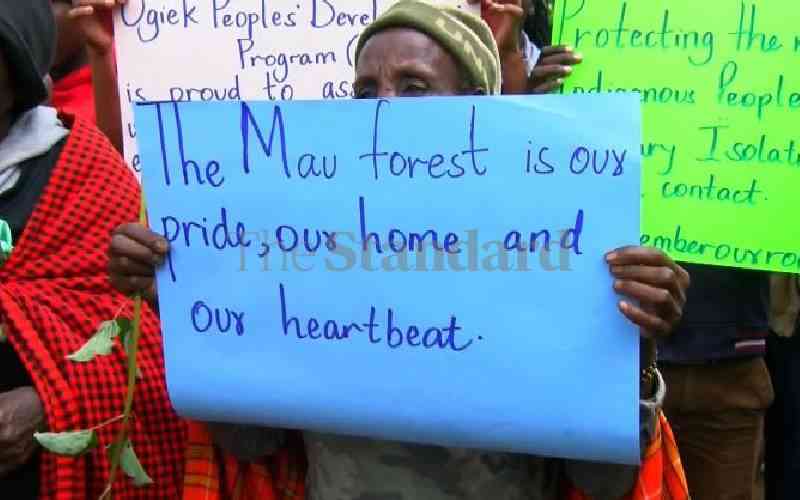×
The Standard e-Paper
Kenya’s Boldest Voice

From a life of plenty to depending on relief supplies is the sharp contrast in the story of hundreds of families from the Ogiek community evicted from East Mau Forest.
The families lost their homes and farms in November 2023, when the government through the Kenya Forest Service (KFS) evicted them from Sasimwani water tower.